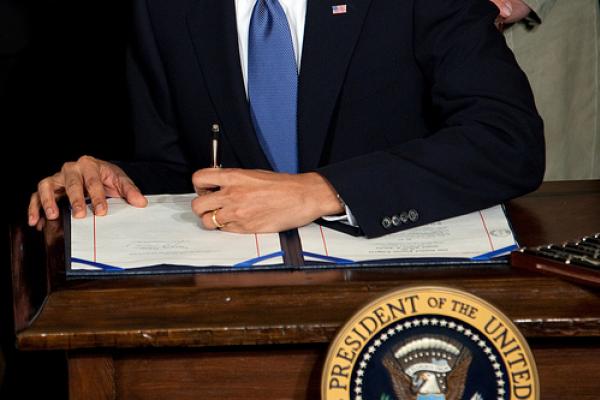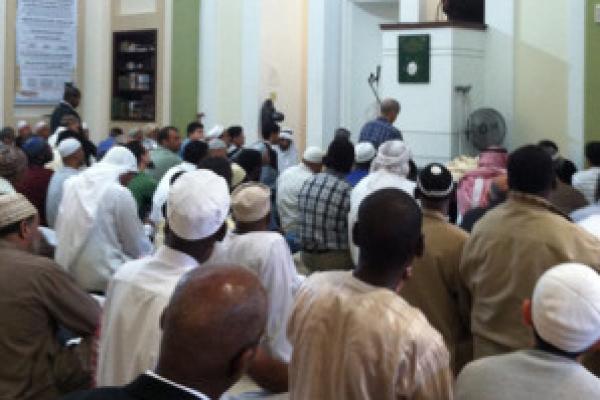If, through broader networks of power, injustice is linked, it is no less true that injustice is encountered locally in neighborhood markets, schools, churches, and even corner fast-food joints. Today it is useful to begin not with the unseen oppressive power networks in our society but with their effects on those closest to us. Just ask the single parent serving dollar ice cream at a favorite fast-food hangout if he or she would like better hourly wages.
While fast food CEOs average a daily salary of $25,000, workers at fast-food companies in New York City make only 25 percent of the money they need to survive. Single parents earning the current federal minimum wage of $7.25 an hour are, as Jillian Berman of the Huffington Post describes, not able to survive even in America’s cheapest counties. The Wider Opportunities for Women estimates that women are 50 percent more likely than men to earn the minimum wage. Compound this with the status of single motherhood and the needs of the household intensify exponentially.
Dependent on minimum wages are children, who like any other child in the U.S., deserve access to healthy food, clothing, affordable shelter, and descent education. Within the current reconfigurations taking place in the U.S. economy, the new modes of production continue to privilege those like the CEOs of fast-food companies. Yet, as Isaiah’s ballad reminds us, these wider realities have a local impact on the everyday friend, who routinely rises every morning to try and make ends meet on meager wages. The current vineyard of the fast-food industry has not stopped producing sour grapes, which is the massive sale of cheap empty calories at the wage of $7.25 an hour.
An effort to tweak President Obama’s health care reform bill to fill a gap for church health insurance plans could fail because of Republicans’ insistence on repealing the law.
Without a fix, United Methodist Church leaders say some of their churches could drop current coverage for employees once “Obamacare” takes full effect next year, according to Colette Nies, spokeswoman for the UMC’s General Board of Pension and Health Benefits.
Under Obama’s 2010 Affordable Care Act, more than 50 percent of UMC clergy would qualify for tax credits available to lower- and middle-class families to purchase insurance. But because of the way the law was written, those tax credits cannot be used toward insurance plans churches can offer through government-run exchanges.
Several of my college buddies should work for Daniel Tosh. They have the uncanny ability to scour the Internet and find the most obscure and outlandish videos. Recently, one of my buddies posted a video called Bibleman. My eyes and ears could only withstand a few minutes before I determined my soul might wither away. I assume this was just one video in an entire series. Even more disheartening is the fact it was put out by a church.
Here is, yet again, a case where the church, in an attempt to imitate culture falls short. The result is that they wind up excelling in mediocrity. Granted, I'm sure that's not the goal of any church, but sadly mediocrity is what most seem to offer. My hope is that this comes across as an open dialogue in how we can better proclaim the message of Jesus instead of a bitter rant directed toward the church.
We all realize that a copy is never as good as the original. Unfortunately, we have a difficult time grasping this truth in the church. We have ceased innovating and settled for imitating.
In their holiday Eid al-Fitr khutbas, or sermons, on Thursday many imams across the country noted a growing climate of acceptance in America but urged Muslims not to forget the problems facing their communities in the U.S. and overseas.
“The Eid khutba is like the State of the Union address,” said Oklahoma-born convert Suhaib Webb, imam of the Islamic Society of Boston Cultural Center, the biggest mosque in New England, to an overflowing crowd — men dressed in crisp robes, tunics, and three-piece suits, women in black abayas, long floral wraps, and colorful headscarves.
“Our community is at a unique crossroads,” Webb said, issuing a call for older Muslim generations to allow younger generations to have greater roles in community affairs. “There are a lot of young people with a lot of excitement, and a lot of old people with a lot of fear. And that’s not a healthy thing.”



